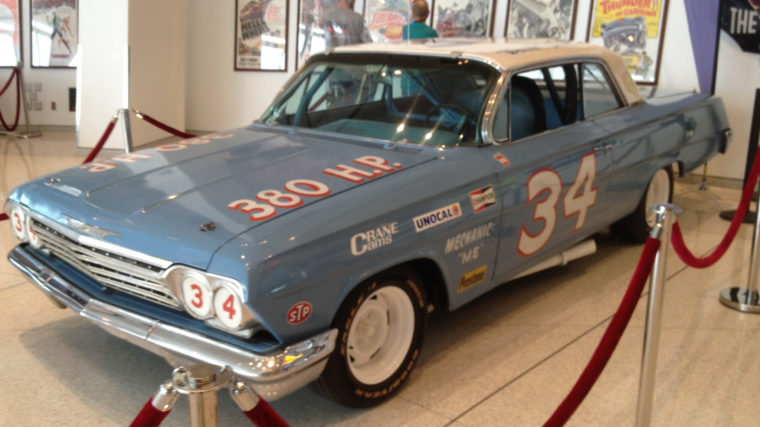Wendell Scott: Hard-Driving Motorsport Hero

Photo: Ethan Casey
Wendell Scott was a pioneer in American motorsports. In a tumultuous time of prejudice and discrimination, Scott’s skill, determination, and upbeat attitude took him to first place at the 1963 Grand National race, making him the first black driver to win at NASCAR’s premier level. In honor of Black History Month and Wendell Scott’s perseverance in the face of adversity, here’s a look at the life and career of a legendary driver.
Saluting Our Troops: GM Military Discount
Driving dreams
Born in 1921 in Danville, Virginia, Wendell Scott grew up during the era of Jim Crow laws and segregation. He always had a taste for adrenaline, as evidenced by his early love of bicycle racing and roller skating. As the son of a mechanic, his father mentored him in both driving and automotive repair, a skill set that would serve him well later in life.
Eventually, Scott quit high school and became a taxi driver. That didn’t last long — once World War II broke out, he served in the 101st Airborne Division as a soldier and mechanic in the European Theatre. When he returned from the war, he opened an automotive repair shop. But that wasn’t all — on the side, he began to pursue his dream of becoming a race car driver.
Racing career
Scott’s racing career debuted in 1947 at the Danville Fairgrounds. His car broke down during the race, and the crowd viciously mocked him. But with his hard work, relentless positivity, and exciting driving skills, Scott won over the crowd. Although he always had his detractors, he chose to focus on the positive aspects of his fame, using his status to uplift and inspire kids in his hometown. He went on to race with the Dixie Circuit and eventually earned his way to a spot in NASCAR’s 1963 Grand National Race at Jacksonville Speedway Park. He started in 15th place and finished first.
However, when he crossed the finish line, the checkered flag didn’t wave for him — instead, the victory was erroneously awarded to Buck Baker, who was two laps behind Scott. Although NASCAR later recognized Scott’s win, he was given a wooden placeholder trophy with no information about his placing, the date, or the race itself. Thanks to the efforts of the Jacksonville Stock Car Racing Hall of Fame, Scott’s family eventually received the hard-won trophy — 20 years after his death.
Legacy

Although Scott never got to see his NASCAR trophy, his achievements were recognized in other ways. In 1977, the movie “Greased Lightning” honored his career. He even contributed by building a replica of his race car for the film, which starred Richard Pryor, Pam Grier, and Beau Bridges. Later, his friend and fellow Danville native, Mojo Nixon, exalted him with a song entitled “The Ballad of Wendell Scott.” Danville even honored him
Protecting What Matters Most: Teen drivers benefit from larger models
Though Scott passed away in 1990, his legacy lives on. In 1999, he was inducted into the International Motorsports Hall of Fame, and in 2015, NASCAR granted him his rightful place in its Hall of Fame. Today, the Wendell Scott foundation memorializes its namesake’s achievements with a museum and a program that provides students with opportunities to learn about science, engineering, technology, and mathematics.
Sources: Wendell Scott Foundation, USA Today, Hot Rod, Jacksonville, Speedway Media
Kimiko Kidd is a native Daytonian. She graduated from Wright State University with degrees in environmental science and sociology. She loves her trusty old Honda Civic, but dreams of owning a 1974 Ford Falcon XB with a custom paint job and a vintage Kawasaki Z1000. In her free time, Kimiko can be found watercolor-painting, baking muffins, collecting rocks, playing old-school Nintendo games, writing her novel, sewing stuffed animals, and cosplaying as her favorite Mad Max characters. See more articles by Kimiko.

